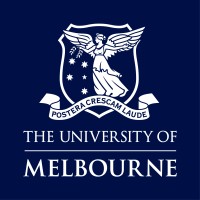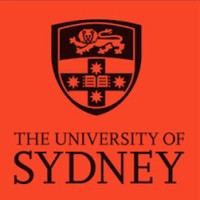Loading...
Australian University Jobs
Discover how well you match with a job using UniJobAI!
Closing: 18-Nov-2024
Job Summary
Dates
- Opening Date: 21-Oct-2024
- Closing Date: 18-Nov-2024
Location
- Parkville, Victoria, Australia
Salary
- Academic Level B – $119,231 - $141,581 p.a. plus 17% super; Academic Level C - $146,050 - $168,403 p.a. plus 17% super
Responsibilities
- Oversee the development and implementation of model-based studies of infectious diseases.
- Coordinate the synthesis of model findings and produce reports, drafting peer-reviewed publications.
- Provide day-to-day oversight and mentoring for graduate research students, with opportunities for formal supervision.
- Assist with preparing responses to government Requests for Quotation, including budgets.
Requirements
- Possess a PhD in applied mathematics, mathematical biology, statistics, biostatistics, computer science, epidemiology, or an equivalent qualification.
- Experience in producing computational code for mathematical models of biological systems, using languages like Python, R, or C++.
- Experience working across academia and government, developing and communicating modelling outputs to support policy decision-making.
- Demonstrated ability to work collaboratively in a multi-disciplinary team to achieve project goals and meet deadlines.
- Excellent written and verbal communication skills across disciplines and sectors.
- Experience publishing peer-reviewed scientific articles.
Benefits
- Salary packaging
- Subsidised health and wellbeing services
- Fitness and cultural clubs
- Myki discounts
- 25% discount on graduate courses for staff and their immediate families
- Generous leave provisions
Notes
- Visa sponsorship is available for this position.
- The successful candidate must undergo and maintain an up-to-date Working with Children Check.
Closing: 18-Jun-2024
Expired
Job Summary
Dates
- 28-May-2024 - Job Opening
- 18-Jun-2024 - Job Closing
Responsibilities
- Work collaboratively as a member of a distributed team of computational modelling specialists, within the Centre’s Modelling Science Project.
- Configure, run, and modify experimental versions of the Australian community climate model (ACCESS).
- Create and maintain technical documentation and contribute to the preparation of articles for publication.
- Work closely and collaboratively with other staff across the Centre, under the technical direction of a more senior staff member.
Requirements
- A postgraduate qualification in science, software engineering, or closely related fields.
- Demonstrated experience with software development in a version controlled scientific environment, in particular solving physical problems using numerical algorithms.
- Experience in computer languages such as: Fortran, Python and C/C++ in a Unix/Linux environment.
- Experience with MPI-based parallelisation and with high-performance computing.
Benefits
- Salary packaging
- Subsidised health and wellbeing services
- Fitness and cultural clubs
- Myki discounts
- 25% discount on graduate courses to staff and their immediate families.
Notes
- Role type: Full-time; Fixed-term for 3 years
- Visa sponsorship is not available for this position
- Working with Children Check required
Closing: 24-Jun-2024
Expired
Job Summary
Dates
- 28 May 2024 - Advertised
- 24 Jun 2024 - Closing
Responsibilities
- Manage day to day operations and work collaboratively as a member of a distributed team of research software engineers, within the Centres’ Modelling Science Project and CMS Team.
- Manage software development projects in climate and weather modelling from concept through to implementation and be responsible for the subsequent evaluation and testing.
- Provide recommendations for the ongoing management and continuous improvement of the systems such as providing technical support through the investigation, resolution and tracking of software issues and computational needs on NCI systems.
- Maintain extensive up to date knowledge of new and innovative methods in climate computing and where appropriate negotiate the use of third-party solutions in the Centre.
- Develop and maintain technical documentation and contribute to the preparation of articles for publication.
- Provide high level domain support and training to researchers to improve the computational skill level throughout the Centre, including developing a program of tutorials, training exercises, and example model configurations.
- Manage and implement WHS processes and safe work procedures for the computational aspects of the facility including ensuring hazards and risks are identified and controlled for tasks, projects and activities that pose a health and safety risk within your area of responsibility.
- Align with and actively demonstrate the UNSW Values in Action: Our Behaviours and the UNSW Code of Conduct.
- Cooperate with all health and safety policies and procedures of the university and take all reasonable care to ensure that your actions or omissions do not impact on the health and safety of yourself or others.
Requirements
- A degree with a depth of subsequent relevant experience or an equivalent level of knowledge gained through any other combination of education, training and/or experience.
- Demonstrated programming skills and experience in a Unix/Linux environment, particularly in Python, FORTRAN or other programming languages used. Experience in working in a HPC environment and/or parallel programming would be viewed favourably as would familiarity with GPU technology and experience with GPU accelerators in python.
- Demonstrated capacity to assist and manage team members and students with broad technical and project planning advice, including analysing data, and optimising computational protocols.
- Specific domain expertise, which may include machine learning, high-resolution atmospheric, or data science.
- Knowledge and technical experience in the design and application of supercomputing and data management solutions for climate science
- Knowledge of the Australian climate computing framework, including key systems and stakeholders
- High level analytical and problem-solving skills
- Demonstrated knowledge of best practices in software engineering. Experience with modern version control software, e.g. git and GitHub, is highly desirable.
- Proven ability to work flexibly, prioritise work to meet conflicting deadlines, and to quickly adapt to new environments including a demonstrated ability to use initiative, apply sound judgement and work with minimum supervision individually and within a team environment.
- Excellent verbal and written communication skills
- An understanding of and commitment to UNSW’s aims, objectives and values in action, together with relevant policies and guidelines.
- Knowledge of health and safety responsibilities and commitment to attending relevant health and safety training
Benefits
- missing
Notes
- This position is primarily funded by the Australian Research Council Centre of Excellence for the Weather of the 21st Century. The incumbent will contribute to and benefit from being a part of a supportive and vibrant Centre community which offers unparalleled networking and professional development opportunities. The Centre is a major seven-year initiative funded by the Australian Research Council. It is a consortium of 24 partners led by Monash University in partnership with The University of Melbourne, The University of New South Wales, The Australian National University, and the University of Tasmania.
- The Centre’s team-based research is focused on how Australia’s weather is being reshaped by climate change. The Centre conducts blue-sky research with real-world applications for communities, industry and government. The research program is made up of six integrated Centre Projects: Weather System Dynamics; SSTs, Modes of Variability and Weather Systems; Weather Systems in a Warmer World; Weather Resources; High-Impact Weather; and Modelling Science. This position forms an integral part of the Centre Project: Modelling Science and the research software engineer will help the Centre achieve its ambitions for a new high-resolution coupled modelling system and will assist Centre researchers through a comprehensive training and support program.
Extras
- The incumbent will liaise with research staff and students within each of the five partner universities of the Centres, NCI, Australian Earth System Simulator (ACCESS-NRI), Bureau of Meteorology and CSIRO and overseas institutions. As such the incumbent will demonstrate a strong understanding of major global and Australian climate modelling initiatives and interactions between a range of organisations and model suites.
Closing: 29-Jun-2024
Expired
Job Summary
Dates
- Posted 10 Days Ago
Responsibilities
- liaise with project partners and stakeholders
- use mechanistic modelling to spatialise crop yield predictions under a variety of data input scenarios
- use data-driven models and machine learning to better understand the spatio-temporal impact of soil properties, weather, management, and residual herbicides on crops
- publish research in peer reviewed publications
- help manage the project to ensure the delivery of project milestones
Requirements
- a PhD (or near completion) in precision agriculture, crop modelling, remote sensing, computer science or other quantitative disciplines
- expertise in data-centric languages such as R and/or Python
- expertise in analysis of spatial data such as remote sensing, and/or ‘on-farm’ data such as yield maps
- preferred expertise in mechanistic modelling such as crop simulation models (e.g. APSIM, DSSAT), or other agriculture-related simulation models (e.g. soil carbon models such as Roth-C)
- preferred expertise in machine learning/AI and/or statistical modelling
- a track record of publications in peer-reviewed journals
- experience in liaising with industry stakeholders/farmers and managing projects involving multiple people and/or organisations
Benefits
- Full time, 3 years fixed term opportunity
- Opportunity to join a successful and innovative team in agricultural modelling/precision agriculture
Closing: 31-Dec-2024
Job Summary
Dates
- 30 May 2024 - Job Opening Date
- 31 December 2024 - Job Closing Date
Responsibilities
- We are currently seeking expressions of interest for casual academics to teach the Building Information Modelling and Management related units in the Master of Construction Management. This includes conducting face to face and/or online lectures, tutorials and/or assignment marking.
Requirements
- Excellent grounding in Building Information Modelling (BIM) and Management theory and practice. Collaboration in BIM, Knowledge of the application of BIM to the built environment, Data and Information management and Digital Twin. Competency using proprietary BIM software applications, for authoring, checking and planning. Capacity to develop units of undergraduate and postgraduate courses. A PhD or substantial industry experience (with a post graduate degree in relevant area). Experience in teaching or conducting research in BIM related area (Desirable). Work experience within the built environment sector using BIM (Desirable).
Benefits
- Apply today for a career that changes lives.
Notes
- CQUniversity offers three terms of enrolment per year and casual academic staff are contracted based on student enrolments each term. Please note this vacancy is a casual pool. Your expression of interest will remain valid until the end of 2024. You will only be contacted if appropriate casual work becomes available whilst your application is active.
Closing: 08-Sep-2024
Expired
Job Summary
Dates
- Opening Date: Not Available
- Closing Date: 08-Sep-2024
Responsibilities
- Conduct original research to advance gene annotations, characterise gene functions, and decipher regulatory mechanisms in almond and mango crops.
- Collaborate with breeders and academic institutions to develop molecular markers and precision breeding techniques.
- Communicate research findings at scientific meetings and publish in high-impact journals.
- Provide research updates to funders, breeders, growers, and other stakeholders.
- Contribute to teaching and co-supervise students.
Requirements
- Ph.D. degree or equivalent professional experience in a research field related to molecular plant biology, genetics, genomics and/or biochemistry.
- Expertise in plant genomics, genetic manipulation, molecular biology, cellular biochemistry, tissue culture, and bioinformatics.
- Skilled in metabolome, transcriptome, methylome, and epigenomic analyses.
- Adept at managing data and ensuring reproducible research with strong statistical foundations.
- Ability to prepare milestone reports and write manuscripts for publication.
Benefits
- Tailored career mentoring plan.
- Opportunity to contribute to teaching.
- Work in a world-leading research institute with unique research facilities.
- Full-time fixed-term position for 3 years.
Notes
- You must provide evidence of your full-time working rights in Australia at time of application.
- Only applications submitted via the WSU online recruitment system will be accepted.
Closing: 08-Sep-2024
Expired
Job Summary
Dates
- Opening Date: Not Available
- Closing Date: 08-Sep-2024
Responsibilities
- Conduct original research to advance gene annotations, characterise gene functions, and decipher regulatory mechanisms in almond and mango crops.
- Collaborate with breeders and academic institutions to develop molecular markers and precision breeding techniques.
- Communicate research findings at scientific meetings and publish in high-impact journals.
- Provide research updates to funders, breeders, growers, and other stakeholders.
- Contribute to teaching and co-supervise students.
Requirements
- Ph.D. degree or equivalent professional experience in a research field related to molecular plant molecular biology, genetics, genomics and/or biochemistry.
- Expertise in plant genomics, genetic manipulation, molecular biology, cellular biochemistry, tissue culture, and bioinformatics.
- Skilled in metabolome, transcriptome, methylome, and epigenomic analyses metabolite extractions to statistical and graphic data output.
- Adept at managing data and ensuring reproducible research with strong statistical foundations.
- Ability to prepare milestone reports and write manuscripts for publication.
Benefits
- Tailored career mentoring plan.
- Opportunity to contribute to teaching.
- Travel to other locations for research collaboration.
Notes
- You must provide evidence of your full-time working rights in Australia at time of application.
- Only applications submitted via the WSU online recruitment system will be accepted.
Closing: 05-Sep-2024
Expired
Job Summary
Dates
- Opening Date: 26-Aug-2024
- Closing Date: 05-Sep-2024
Location
- St Lucia Campus
Salary
- Base salary will be in the range $78,871.35 - $105,004.02 + 17% Superannuation (Academic Level A)
Responsibilities
- Conduct in-depth research on privacy threats and vulnerabilities in XR environments.
- Develop and implement threat models to assess the impact of different types of attacks on XR systems.
- Contribute to the development of a risk assessment framework for AI-intensive HSE scenarios, considering privacy, ethical, and/or security implications.
- Research and develop techniques for operationalizing AI principles, such as the right to be forgotten, in XR applications.
- Contribute to the design and implementation of a data governance framework, including the development of DataBOM standards and blockchain-based solutions.
- Collaborate with researchers and industry partners to translate research findings into practical solutions.
- Publish research findings in high-quality academic journals and conferences.
- Supervise research students and interns as required.
- Contribute to the effective supervision of Honours and Higher Degree by Research students (as appropriate).
- Demonstrate personal effectiveness in supervision and the management of researcher development.
- Manage research support staff effectively throughout the employee lifecycle in accordance with University policy and procedures.
- Resolve conflict and grievances when they arise in accordance with University policy and procedures.
Requirements
- Completion of a PhD in the area of computer science or software engineering.
- Demonstrated expert knowledge in the area of cyber security and software system analysis.
- Demonstrated technical knowledge of critical infrastructures, program analysis, and mining software repositories.
- Strong track record of publications with CORE A* journals/conferences.
- Strong software development ability.
- Evidence of a contribution to research.
- Background in vulnerability assessment, reverse engineering, and responsible AI.
- Excellent data analytics and statistics.
- Knowledge in formal analysis.
- Knowledge in SE4AI
Benefits
- Access to world-class facilities and equipment
- Grant writing support
- Greater research funding opportunities
- Up to 26 weeks of paid parental leave
- 17.5% annual leave loading
- Flexible working arrangements including hybrid on site/WFH options
- Flexible start/finish times
- Genuine career progression opportunities via the academic promotions process
- Visa sponsorship may be available for international candidates
- Relocation support package for interstate or overseas candidates
Notes
- The successful candidate may be required to complete pre-employment checks including right to work in Australia, criminal check, education check, mandatory immunisations, etc.
- Visa sponsorship may be available for international candidates.
Closing: 08-Sep-2024
Expired
Job Summary
Dates
- Opening Date: 08-Sep-2024
- Closing Date: 08-Sep-2024
Location
- Western’s Hawkesbury Campus
Salary
- $106,765 to $128,989 p.a. Inclusive of Superannuation + Leave Loading
Responsibilities
- Conduct research in plant molecular biology and almond crop genomics.
- Collaborate with other researchers and stakeholders in the field.
- Publish research findings in academic journals and present at conferences.
- Supervise and mentor junior researchers and students.
Requirements
- PhD in Plant Molecular Biology, Genomics, or a related field.
- Experience in molecular biology techniques and genomic analysis.
- Strong publication record in relevant research areas.
- Ability to work collaboratively in a team environment.
Benefits
- Competitive salary package.
- Access to professional development opportunities.
- Flexible working arrangements.
- Supportive research environment.
Notes
- This position is open to Western Sydney University internal applicants only.
Closing: 18-Sep-2024
Expired
Job Summary
Dates
- Opening Date: 29-Aug-2024
- Closing Date: 18-Sep-2024
Location
- Kensington – Sydney, Australia
Salary
- Salary, Level A - $110,059 to $117,718 per annum + 17% superannuation
Responsibilities
- Enhance research skills by working on blast furnace modelling projects
- Focus on high-temperature experiment of iron ore reduction, biocoke kinetics, and slag chemistry
- Contribute to writing scientific papers and reports for international journals
- Participate in conferences, workshops, and supervising HDR students
- Engage with industry partners
Requirements
- PhD in Metallurgical Engineering, Chemical Engineering, Mechanical Engineering, or related area
- Commitment to staying updated with discipline knowledge, especially in high-temperature experiments
- Ability to conduct high-quality academic research independently
- Track record of high-impact publications and conference presentations
- Teamwork skills, collaboration across disciplines, and building effective relationships
- Strong interpersonal and communication skills
- Understanding and commitment to UNSW's aims, objectives, and values
- Knowledge of health and safety responsibilities and relevant training
Benefits
- Opportunity for scholarly research and professional activities nationally and internationally
- Development of research skills and contributions to academic publications
- Engagement with industry partners and exposure to cutting-edge research
- Access to flexible work options for eligible staff
Notes
- Fixed-term contract for 12 months with likely extension
- Reporting to Prof. Yansong Shen with no direct reports
Closing: 18-Sep-2024
Expired
Job Summary
Dates
- Opening Date: 29-Aug-2024
- Closing Date: 18-Sep-2024
Location
- Kensington – Sydney, Australia
Salary
- Salary, Level A - $110,059 to $117,718 per annum + 17% superannuation
Responsibilities
- Enhance research skills by working on specific projects related to blast furnace modelling.
- Focus on computational fluid dynamics (CFD) and heat and mass balance (HMB) modelling of low-carbon blast furnace ironmaking.
- Develop scholarly research and professional activities both nationally and internationally.
- Contribute to the writing of scientific papers and reports for international journals.
- Participate in conferences and workshops.
- Supervise HDR students.
- Engage actively with industry partners.
Requirements
- A PhD in Metallurgical Engineering, Chemical Engineering, Mechanical Engineering or related area, and/or relevant work experience.
- Proven commitment to proactively keeping up to date with discipline knowledge and developments.
- Demonstrated ability to undertake high quality academic research and conduct independent research with limited supervision.
- Demonstrated track record of high-impact publications and conference presentations relative to opportunity.
- Demonstrated ability to work in a team, collaborate across disciplines and build effective relationships.
- Evidence of highly developed interpersonal skills.
- Demonstrated ability to communicate and interact with a diverse range of stakeholders and students.
- An understanding of and commitment to UNSW’s aims, objectives and values in action, together with relevant policies and guidelines.
- Knowledge of health and safety responsibilities and commitment to attending relevant health and safety training.
Benefits
- Full time fixed-term contract – 12 months with likely extension.
- Opportunity to work in a top-ranked school known for quality education and cutting-edge research.
- Engagement with a diverse and talented community.
- Access to flexible work options for eligible staff.
Notes
- Applications will not be accepted if sent to the contact listed below.
- UNSW is committed to evolving a culture that embraces equity and supports a diverse and inclusive community.
Closing: 18-Sep-2024
Expired
Job Summary
Dates
- Opening Date: 29-Aug-2024
- Closing Date: 18-Sep-2024
Location
- Kensington – Sydney, Australia
Salary
- Salary, Level A - $110,059 to $117,718 per annum + 17% superannuation
Responsibilities
- Enhance research skills by working on specific projects related to blast furnace modelling.
- Focus on CFD-DEM modelling of low-carbon blast furnace ironmaking.
- Contribute to the writing of scientific papers and reports for international journals.
- Participate in conferences and workshops.
- Supervise HDR students.
- Engage actively with industry partners.
Requirements
- A PhD in Metallurgical Engineering, Chemical Engineering, Mechanical Engineering or related area, and/or relevant work experience.
- Proven commitment to proactively keeping up to date with discipline knowledge and developments.
- Demonstrated ability to undertake high quality academic research and conduct independent research with limited supervision.
- Demonstrated track record of high-impact publications and conference presentations relative to opportunity.
- Demonstrated ability to work in a team, collaborate across disciplines and build effective relationships.
- Evidence of highly developed interpersonal skills.
- Demonstrated ability to communicate and interact with a diverse range of stakeholders and students.
- An understanding of and commitment to UNSW’s aims, objectives and values in action, together with relevant policies and guidelines.
- Knowledge of health and safety responsibilities and commitment to attending relevant health and safety training.
Benefits
- Full time fixed-term contract – 12 months with likely extension.
- Opportunity to develop scholarly research and professional activities both nationally and internationally.
Notes
- This position reports to Prof. Yansong Shen with no direct reports.
- Additional details about the specific responsibilities for this position can be found in the position description.
Closing: 11-Oct-2024
Expired
Job Summary
Dates
- Opening Date: 30-Aug-2024
- Closing Date: 11-Oct-2024
Location
- Parkville, Victoria, Australia
Salary
- Level A – $83,468- $113,262 p.a. (PhD entry Level A.6 - $105,518 p.a.) plus 17% super
Responsibilities
- Independently planning and carrying out research on the research project and working towards completion of the aims of the project, including mathematical modelling and some experimental work.
- Developing effective timelines and milestones based on goals of the research program.
- Liaising effectively with collaborators and a variety of internal and external stakeholders to foster collaborative partnerships and working with teams to achieve joint outputs and outcomes.
- Preparing and publishing research outcomes in conferences and journals and other scholarly outputs to a high academic standard in accordance with the research expectations of the University of Melbourne.
- Contributing to the research group and assisting in co-supervision of PhD and masters project students.
Requirements
- A postgraduate research degree at PhD level (or near completion) or Higher Education qualification in a field relevant to the position described above, specifically in chemical or biochemical engineering, mathematical process modelling or bioreactor modelling for mammalian cell culture.
- A sound understanding of the fundamentals of engineering including fluid flow, heat and mass transfer, process control and mathematical model development.
- A high proficiency in mathematics, preferably related to models.
- An understanding of bioprocessing and cell culture.
- A record of high-quality research as evidenced by publications in leading journals and at conferences commensurate with opportunity.
- Ability to perform independent research with a commitment to interdisciplinary research.
- Ability to work with industry partners to achieve applied outcomes and to work with others across the sector to achieve industry impact and sector transformation.
Benefits
- Salary packaging
- Subsidised health and wellbeing services
- Fitness and cultural clubs
- Myki discounts
- 25% discount on graduate courses for staff and their immediate families
- Generous leave provisions
Notes
- This role requires that the successful candidate must undergo and maintain an up-to-date Working with Children Check.
- Visa sponsorship is not available for this position; current valid work rights for Australia are required.
Closing: 08-Sep-2024
Expired
Job Summary
Dates
- Opening Date: 08-Sep-2024
- Closing Date: 08-Sep-2024
Location
- Western’s Hawkesbury Campus
Salary
- $106,765 to $128,989 p.a. Inclusive of Superannuation + Leave Loading
Responsibilities
- Conduct research in plant molecular biology and almond crop genomics.
- Collaborate with other researchers and stakeholders in the field.
- Publish research findings in peer-reviewed journals.
- Present research at conferences and seminars.
Requirements
- PhD in Plant Molecular Biology, Genomics, or a related field.
- Experience in molecular biology techniques and genomic analysis.
- Strong analytical and problem-solving skills.
- Ability to work independently and as part of a team.
Benefits
- Competitive salary package.
- Access to professional development opportunities.
- Flexible working arrangements.
- Supportive research environment.
Notes
- This position is open to Western Sydney University internal applicants only.
- Full-time, fixed-term position for 3 years.
Closing: 08-Sep-2024
Expired
Job Summary
Dates
- Opening Date: 08-Sep-2024
- Closing Date: 08-Sep-2024
Location
- Western’s Hawkesbury Campus
Salary
- $106,765 to $128,989 p.a. Inclusive of Superannuation + Leave Loading
Responsibilities
- Conduct research in plant molecular biology and almond crop genomics.
- Collaborate with other researchers and stakeholders in the field.
- Publish research findings in reputable journals.
- Present research at conferences and seminars.
Requirements
- PhD in Plant Molecular Biology, Genomics, or a related field.
- Experience in molecular biology techniques and genomic analysis.
- Strong analytical and problem-solving skills.
- Ability to work independently and as part of a team.
Benefits
- Competitive salary package.
- Access to professional development opportunities.
- Flexible working arrangements.
- Supportive research environment.
Notes
- This position is open to Western Sydney University internal applicants only.
Closing: 08-Sep-2024
Expired
Job Summary
Dates
- Opening Date: 08-Sep-2024
- Closing Date: 08-Sep-2024
Location
- Western’s Hawkesbury Campus
Salary
- $106,765 to $128,989 p.a. Inclusive of Superannuation + Leave Loading
Responsibilities
- Conduct research in plant molecular biology and almond crop genomics.
- Collaborate with other researchers and stakeholders in the field.
- Publish research findings in peer-reviewed journals.
- Present research at conferences and seminars.
Requirements
- PhD in Plant Molecular Biology, Genomics, or a related field.
- Experience in molecular biology techniques and genomic analysis.
- Strong analytical and problem-solving skills.
- Ability to work independently and as part of a team.
Benefits
- Competitive salary package.
- Access to professional development opportunities.
- Flexible working arrangements.
Notes
- This position is open to Western Sydney University internal applicants only.
Closing: 08-Sep-2024
Expired
Job Summary
Dates
- Opening Date: 08-Sep-2024
- Closing Date: 08-Sep-2024
Location
- Western’s Hawkesbury Campus
Salary
- $106,765 to $128,989 p.a. Inclusive of Superannuation + Leave Loading
Responsibilities
- Conduct research in plant molecular biology and almond crop genomics.
- Collaborate with other researchers and stakeholders in the field.
- Publish research findings in academic journals and present at conferences.
- Assist in the supervision of undergraduate and postgraduate students.
Requirements
- PhD in Plant Molecular Biology, Genomics, or a related field.
- Experience in molecular biology techniques and genomic analysis.
- Strong analytical and problem-solving skills.
- Ability to work independently and as part of a team.
Benefits
- Competitive salary package.
- Access to professional development opportunities.
- Flexible working arrangements.
- Supportive research environment.
Notes
- This position is open to Western Sydney University internal applicants only.
- Full-time, fixed-term position for 3 years.
Closing: 08-Sep-2024
Expired
Job Summary
Dates
- Opening Date: 08-Sep-2024
- Closing Date: 08-Sep-2024
Location
- Western’s Hawkesbury Campus
Salary
- $106,765 to $128,989 p.a. Inclusive of Superannuation + Leave Loading
Responsibilities
- Conduct research in plant molecular biology and almond crop genomics.
- Collaborate with other researchers and stakeholders in the field.
- Publish research findings in academic journals.
- Present research at conferences and seminars.
- Supervise and mentor junior researchers and students.
Requirements
- PhD in Plant Molecular Biology, Genomics, or a related field.
- Experience in molecular biology techniques and genomic analysis.
- Strong publication record in relevant research areas.
- Ability to work collaboratively in a team environment.
- Excellent communication and presentation skills.
Benefits
- Competitive salary package.
- Access to professional development opportunities.
- Flexible working arrangements.
- Supportive research environment.
- Opportunities for collaboration with industry partners.
Notes
- This position is open to Western Sydney University internal applicants only.
- Full-time, fixed-term position for 3 years.
Closing: 08-Sep-2024
Expired
Job Summary
Dates
- Opening Date: 08-Sep-2024
- Closing Date: 08-Sep-2024
Location
- Western’s Hawkesbury Campus
Salary
- $106,765 to $128,989 p.a. Inclusive of Superannuation + Leave Loading
Responsibilities
- Conduct research in plant molecular biology and almond crop genomics.
- Collaborate with other researchers and stakeholders in the field.
- Publish research findings in academic journals and present at conferences.
- Supervise and mentor junior researchers and students.
Requirements
- PhD in Plant Molecular Biology, Genomics, or a related field.
- Experience in molecular biology techniques and genomic analysis.
- Strong publication record in relevant research areas.
- Ability to work independently and as part of a team.
Benefits
- Competitive salary package.
- Access to professional development opportunities.
- Flexible working arrangements.
- Supportive research environment.
Notes
- This position is open to Western Sydney University internal applicants only.
- Full-time, fixed-term position for 3 years.
Closing: 08-Sep-2024
Expired
Job Summary
Dates
- Opening Date: 08-Sep-2024
- Closing Date: 08-Sep-2024
Location
- Western’s Hawkesbury Campus
Salary
- $106,765 to $128,989 p.a. Inclusive of Superannuation + Leave Loading
Responsibilities
- Conduct research in plant molecular biology and almond crop genomics.
- Collaborate with other researchers and stakeholders in the field.
- Publish research findings in peer-reviewed journals.
- Present research at conferences and seminars.
- Supervise and mentor junior researchers and students.
Requirements
- PhD in Plant Molecular Biology, Genomics, or a related field.
- Experience in molecular biology techniques and genomic analysis.
- Strong publication record in relevant research areas.
- Ability to work independently and as part of a team.
- Excellent communication and presentation skills.
Benefits
- Competitive salary package.
- Access to professional development opportunities.
- Flexible working arrangements.
- Supportive research environment.
- Access to state-of-the-art facilities.
Notes
- This position is open to Western Sydney University internal applicants only.
- Full-time, fixed-term position for 3 years.





